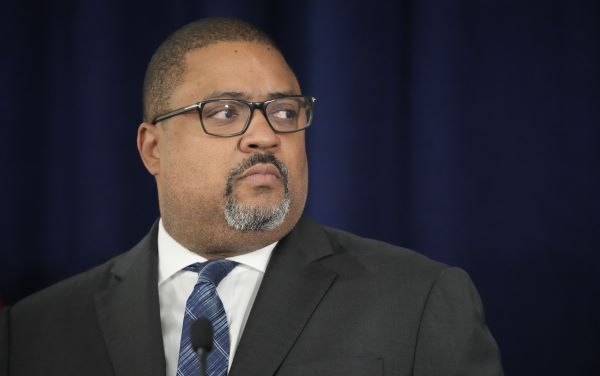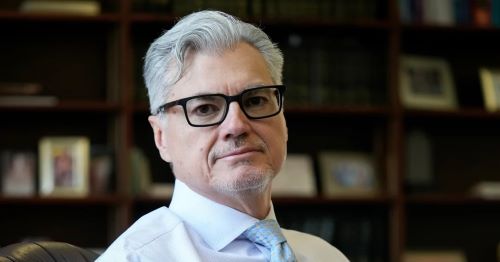Was the Donald Trump ("Hush Mondey") Trial Fair?
by Douglas O. Linder
Fairness, like beauty, is often in the eyes of the beholder. It is no surprise, then, that an overwhelming majority (96%) of Democrats believed the Trump “hush money” trial to be fair, while a large majority (86%) of Republicans believed just the opposite. No discussion of the fairness of the Trump trial is likely to change many minds. There is benefit, however, in looking closely at some of the ways the Trump trial is alleged to be unfair and see which among those claims might have the most merit. To this end, it is useful to divide the claims of unfairness into two categories: first, those claims that the very act of prosecuting the falsification of business records in this case (or at least prosecuting as a felony) was unfair, biased, or unjust in some way; and second, those claims that the trial itself was unfair in its process or its outcome.
Was the prosecution unfair or unjust?
There is no serious question but that Trump knowingly, and with the assistance of Trump Organization employees, falsified business records. That is a crime, but it is just a misdemeanor, not a felony. In New York, however, the crime of falsifying business records “bumps up” to a felony when the falsifying is done in furtherance of a different crime.
What is strange, even a bit Kafkaesque, is that while a jury to convict has to unanimously agree that the defendant, beyond a reasonable doubt, falsified business records, it does not have to agree unanimously that the falsification was entered into to commit any other specific crime. A prosecutor can simply point to a number of criminal statutes that the falsification might arguably have been in furtherance of, and say to jurors, “Just pick one of these—any one will do,” and different jurors are free to focus on different underlying criminal laws. In the Trump “hush money” trial, for example, prosecutors offered jurors a menu of three criminal laws to choose from.

District Attorney Alvin Bragg
Also, a question could be raised about whether the Trump prosecution was a proper use of prosecutorial discretion. Just because this case could be prosecuted as a felony doesn’t mean it should have been prosecuted as a felony. It might have been better use of legal resources to seek a plea deal on a misdemeanor charge. After all, what was criminal in this case, the falsifying of records, was not what arguably caused an injury to the public interest. The alleged injury to the public came from being deprived of important information about the character of a candidate for president (extra-marital affairs,in this case)--but yet there was nothing illegal about buying and killing embarrassing stories. Here it is worth noting that Alvin Bragg’s predecessor, who looked at the facts of this case, did not seek an indictment on felony charges, either because he thought it would be a hard case to win or because he didn’t think the actions in question merited felony charges, which carry the potential for up to a 4-year prison sentence. Alvin Bragg, as Trump supporters are quick to point out, is a Democrat in a very Democratic city.
There are too many ways Americans can be prosecuted for allegedly felonious actions. We are a nation with a lot of criminal laws-- and those laws, sometimes loosely written, can be interpreted to cover a lot of actions. That's a larger question. I am reminded of a remark in 1992 by Judge Richard A. Posner in his review of a book on the Nazi-era justice system in Germany. Posner wondered, provocatively, whether American "prosecutors who pursue marijuana growers, sellers of dirty magazines, and violators of arcane campaign financing regulations are inappropriately using their offices in much the same manner as did prosecutors who earlier brought charges against Germans for 'dishonoring the race.'" Posner urged prosecutors not to be "eager enlisters in the popular movements of the day."
Was the trial unfair?
Trump supporters argue that Donald Trump could not get a fair trial in Manhattan. Manhattan is located in New York County, where Trump received only 12% of the vote in the 2020 presidential election. Given that fact, is it highly likely that any jury selected in the trial would contain a substantial majority of Democrats who voted against Trump. Does that make the trial unfair? Trump himself posted on his Truth Social account, “They know I cannot get a fair trial in New York!"
It is hard to argue that the political composition of the jury is irrelevant in a case like this, even though under the law it is and should be. If the Trump trial had taken place in Alabama or Oklahoma or Idaho, would juries in those states have been as likely to have convicted Trump? Of course not. In those states, where Trump won by large majorities, it seems quite likely that one or more Trump-supporting jurors would have held out (more for ideological than evidentiary reasons), resulting in a mistrial. Geography matters, but trials have to take place somewhere, and defendants, especially in cases with political implications, are going to either be benefited or hurt by the location of the trial. That’s our system—and it’s hard to imagine a working alternative. Clearly, Trump lawyers could not demand a trial under New York law move to Idaho—and, under the law, there was no solid basis for moving it to Buffalo either.
It’s worth noting that jurors who cannot fairly weigh the evidence can be excluded for cause, and that each side in the Trump trial had 10 peremptory challenges to exclude potential jurors for any reason they wanted to.

Judge Juan Merchan
Another question of fairness concerns the judge in the Trump trial, Juan Merchan. In a rambling speech at Trump Tower, Donald Trump said the trial was “rigged” and called Merchan “a devil.” Merchan’s daughter worked for a firm that does digital campaign work for Democratic political candidates. Is that alone enough to justify Merchan’s recusal? Probably not. While the activities and passions of children undoubtedly can influence the actions of parents, the real question is whether Juan Merchan can be a fair and impartial jurist, not the politics of his daughter. And, on this question, the majority of observers thought Merchan acquitted himself well.
Yes, there were some Trump supporters claiming judicial bias. They point, for example, to some of the salacious testimony that Stormy Daniels was allowed to present. But here it is worth noting that Merchan sustained defense objections concerning salacious testimony when they were made (such as an objection to Daniels’s description of their sexual position). The fault lies more with Trump’s defense lawyer for not objecting often enough.
Trump supporters also point to Merchan’s reprimanding Robert Costello, the only significant defense witness, in front of the jury, accusing Costello of giving him a “side look” and “staring him down.” Merchan then cleared the courtroom. These actions, it is suggested, might have affected how jurors viewed Costello’s credibility. Judges expect to be respected in their courtrooms—and rightly so. While the situation might have been handled better, a single incident like this is not likely to constitute reversible error.
Finally, Trump supporters attacked Merchan for drafting instructions that allowed jurors in the case to choose among three different legal theories that bumped the falsifying business records charges to felonies. Trump’s lawyers, however, had the opportunity to challenge the instructions prior to their being given—and the issue of the instructions is available on appeal.
While there are arguments to be made for judicial bias, on the whole Judge Merchan seems to have conducted a fair trial. No trial is perfectly fair, but trials are not required to be perfectly fair.
